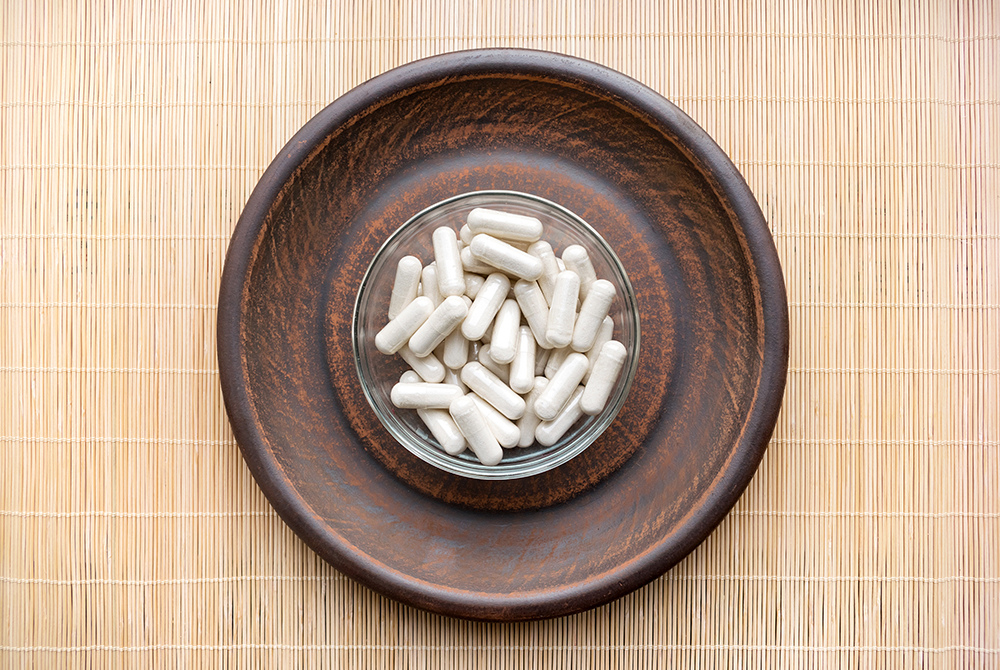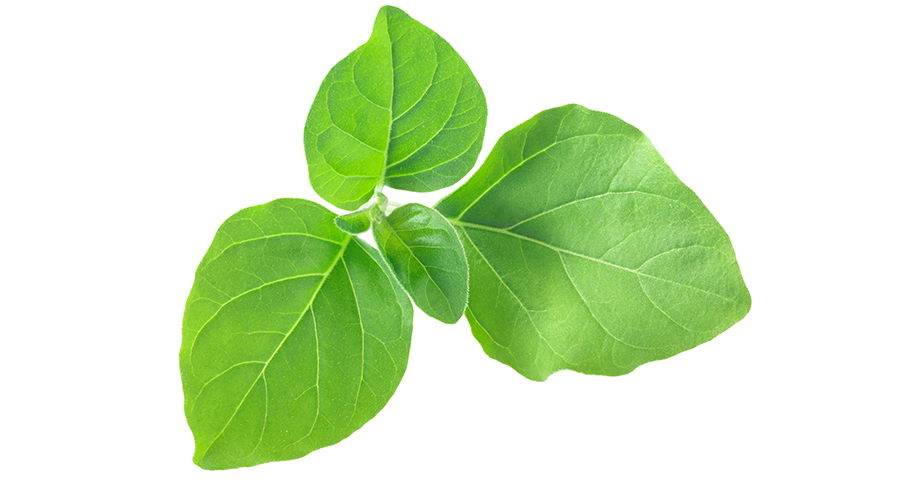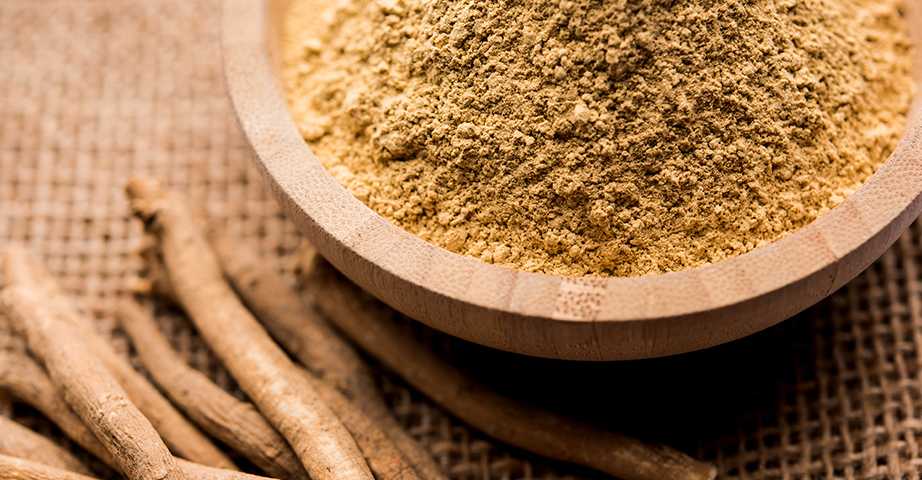Ashwagandha - what does it really help?

Ashwagandha – an herb used for thousands of years in Ayurvedic medicine – is a popular component of supplements. As an adaptogen, it is credited with numerous activities. Whether Ashwagandha is actually as effective as the ads promise? Or is it just marketing? On what does ashwagandha really help? In what doses should it be used? Is supplementation safe? Check!
What is ashwagandha?
Ashwagandha (Withania somnifera) is a plant of the nightshade family originating from Asia, also popular in North Africa. Its polish name is withania somnifera or ashwaganda. Ashwagandha, also called Indian ginseng, is a very important medicinal ingredient in Ayurvedic medicine, where the root and leaves of the plant are used. Ayurveda includes ashwagandha to Rasayana or tonics. Such tonics help "to maintain physical and mental youthfulness and increase feelings of happiness." They are given to people of all ages from children to the elderly, who Ashwagandha is supposed to keep in longevity. Literally, ashwagandha means "horse smell." This is connected with both the fragrance – Fresh root has a horseish smell – as well as with the properties traditionally attributed to ashwaghanda, i.e. adding "horse" forces.
Recommended products with ashwagandha
Ashwagandha is classified as an adaptogen, i.e. agents, which in a non-specific way increase human resistance to harmful factors, physical, chemical, biological and psychological, normalizing homeostasis (biological balance) of organisms. The most often Ashwagandha is used as a means of reducing chronic stress. Ashwagandha is rich in bioactive phytochemicals. The most important in this plant is considered to be withanolides, which are mostly responsible for its properties. Withanolides belong to the group of steroidal lactones. Ashwagandha is rich primarily in vitaferin A, withanolide D and Vitanone.

Properties and action of ashwagandha
Ashwagandha – an ancient medicinal herb – is an adaptogen, which means it helps the body respond better to stressful external conditions – be it biological or environmental, or mental. Adaptogens help maintain the body's balance on many levels and with their mechanism of action is non-specific. On the one hand, this makes it possible for ashwaghanda to have very extensive and diverse action. On the other hand, however, it carries the risk of attributing properties to it, which, in fact, the plant does not have. Most marketers misuse information regarding traditional Ayurvedic use of ashwagandha, promising miracles.At the same time ashwagandha has numerous scientifically proven effects. In some aspects they are really spectacular, in others only mild It is worth knowing what effect ashwaghanda can really expect in the result of supplementation. What does the science say about the properties and effects of ashwagandha?
Ashwagandha reduces cortisol levels and reduces the effects of stress.
Cortisol, the most known stress hormone. Cortisol, the best known stress hormone, is secreted by the adrenal glands in stressful situations. Chronic stress causes cortisol secretion disorders and its too high levels in blood, which has numerous adverse effects on the body. Scientific studies have confirmed that taking ashwagandha supplements reduce cortisol levels in the body. In one of the analyses, people to whom administered ashwagandha, experienced a 30% greater reduction in cortisol levels compared to control group.
Lowering cortisol levels in the body is not the only mechanism for reducing stress of ashwagandha action. Studies on rats have shown that ashwagandha blocks the signaling pathways in the brain responsible for feeling anxious and tense caused by a stressful situation. Human studies confirm that taking ashwagandha reduces symptoms caused by chronic stress, including anxiety and insomnia. Between 69% and 88% of study participants experience a clear alleviation of stress symptoms.
Ashwagandha supports male fertility
Ashwagandha has a great potential in increasing male fertility. Taking the supplement increases the level of testosterone in the blood – One of the most important male hormones, increases the amount of and sperm motility in semen. An additional effect of ashwagandha supporting fertility consists in increase in the level of antioxidants in the body and reduction of the effects of stress. Both of these factors influence on semen quality.

Ashwagandha increases strength and muscle mass
Taking ashwagandha supplement has a positive effect on muscle strength, weight gain muscle and reduction of body fat and also reduces muscle damage during training. This property of ashwagandha refers directly to its ancient use – adding strength and increasing vitality. Of course, this is not a "magic" action. The basis is still training and properly selected diet, however, ashwagandha is a clear support for the body in achieving better body and strength effects.
Other potential effects of ashwagandha
Scientific studies conducted mainly on animals and small studies involving humans indicate that:
- Ashwagandha slightly lowers fasting glucose levels and increases sensitivity cells to insulin preventing insulin resistance.
- Ashwagandha improves lipidogram, lowers total cholesterol, LDL cholesterol and triglycerides in the blood. The effects in animal studies are spectacular, on humans a lot smaller, but still promising.
- Ashwagandha can stimulate thyroid function, increase the secretion of the T4 hormone and reduce the level of TSH in the body.
How to use ashwagandha?
Ashwagandha is available in the form of ready-made tablets or capsules containing extract from roots and leaves of the plant, or as a powdered raw material from which a decoction is prepared. Taking ready-made tablets is certainly more convenient and reliable, because the dose is always the same. In the case of drinking decoctions, equal dosage of bioactive compounds is difficult.
When to take ashwagandha? In the morning or at night? Ashwagandha is usually taken twice daily, morning and evening after meals in equal doses. A typical dosage of ashwaghandy is after 300-500 mg of extract standardized to at least 2.5% withanolides, which means at least 7.5- 12.5 mg withanolides in a single dose. Scientific studies show that harmless is taking much higher doses. However, it is not always more effective.
The ashwagandha supplement should be taken for 6-8 weeks and then do monthly break. The body stimulated all the time with ashwagandha will not react as well to supplementation, as when taking breaks, which prevent getting used to the action of constants doses of withanolides on the body. At the same time, a month is such a short break from treatment that the effects of supplementation still persist.
The dosage of ashwagandha depends on the cause and ailment for which the supplement is accepted. We present doses, which show effectiveness in scientific studies. Remember However, some of them clearly emphasize that to be sure of the effectiveness of supplementation Ashwagandha in a given problem is necessary further research. Dosage presented caused the desired effect in the group of people participating in the analysis, but often the groups of subjects are too small to apply results to entire populations. However, scientific publications are good an indicator of effective dosage of ashwaghandy.
Ashwagandha dosage for various ailments
- Reducing stress and anxiety – 500-600 mg per day for at least 6 weeks.
- Lowering blood glucose levels – 250-3000 mg per day for at least a month.
- Improving male fertility – 5 g per day for at least 3 months.
- Increase in strength and muscle mass – from 500 mg per day for at least 2 months.
- Improved sleep quality - 600 mg daily for at least 2 months.
- Thyroid support - 600 mg daily for at least 2 months.

Ashwagandha – reviews
Opinions about ashwagandha can be extremely different. From praising its effectiveness, to accusations of another marketing gimmick. What it comes from? The main problem with ashwagandha is on the fact that some manufacturers and unreliable sources promise the miraculous effect of the supplement practically everything. From better sleep and learning ability to the treatment of Hashimoto's disease and cancers. Ashwagandha does not have such a comprehensive action as some promise. This is why the opinions on forums among its users can be negative. However, if ashwagandha is used on these problems and ailments, where its action is confirmed by scientific research or even gives promising forecasts and the topic requires more in-depth research, then the opinions are mostly positive. You can not expect from ashwagandha miraculous action in areas where the supplement has no right to work.
Opinions on the forum often do not take into account the dose of the active ingredient (% content withanolides and the amount of mg of withanolides in one dose) in ashwagandha supplement. Only appropriately high concentrations of withanolides make taking ashwagandha effective. High enough or what? It is important that one dose of the supplement contains between 300 and 500 mg extract from ashwaghanda roots or leaves and at the same time was standardized at least 2.5% withanolides.
Before giving an opinion or suggesting an opinion from the forum, it is worth knowing that ashwagandha works only after 2-3 months of use. You can not expect effects in a few days after the start taking the supplement.
Is ashwagandha safe?
Taking ashwagandha is studied mainly in short periods of time, most often up to 3 months. According to the results of analyzes at this time the use of ashwagandha is safe. Currently, there is a lack of research on the basis of which it could be clearly concluded that ashwagandha is also safe during prolonged use. However, this does not mean that it is dangerous, but that it is missing evidence to support the thesis.
The side effects of taking ashwagandha relate to the use of high doses – several grams per day. As a result of supplementation with high doses, stomach pain, nausea, vomiting and diarrhea. No other side effects were reported. Ashwagandha should not be combined with alcohol, because it has a similar, though much milder, effect to alcohol.
Ashwagandha is not safe for everyone. The supplement is absolutely Contraindicated to pregnant women, as high doses of ashwagandha can cause miscarriage. Ashwagandha is contraindicated for people with hyperthyroidism and Graves' disease- Basedova, as it may cause increased secretion of the hormone T4.
Contraindications to the use of ashwagandha also include:
- stomach and duodenal ulcers – ashwagandha may irritate mucous membranes,
- taking thyroid hormones – Ashwagandha may increase hormone production by thyroid gland, which requires a change in the dose of medications taken; before starting supplementation it is recommended to be checked by a doctor and perform regular tests of hormone levels thyroid and TSH,
- taking antidiabetic, antihypertensive and hypnotic medicines – Ashwagandha has the effect of these medicines and may excessively increase the effects of their use,
- taking immunosuppressants – ashwagandha stimulates the immune system, so reduces the effects of drugs.

